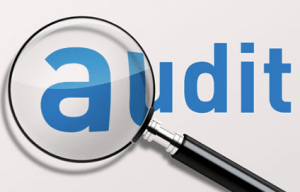NPRA Audit Committee inaugurated
 The Audit Committee of the National Pensions Regulatory Authority (NPRA) has been inaugurated with a call on members to ensure efficient audit systems in government institutions.
The Audit Committee of the National Pensions Regulatory Authority (NPRA) has been inaugurated with a call on members to ensure efficient audit systems in government institutions.
The five-member committee, chaired by Mr John Ofori Odametey, a representative from the Internal Audit Agency (IAA), has a two-year term, an official statement issued in Accra and copied to the GNA said.
The Director-General of the Internal Audit Service, Dr. Eric Oduro Osae, called on members of the committee to work with the management and the Board to bring sanity into the operations of the Authority.
He expressed the need to expand their obligations to other areas on the operations of the Authority such as advisory and supervisory activities
Section 16 (1) of the Internal Audit Agency Act 2003, (Act 658) provides that each Ministry, Department, and Agency (MDA), shall have an Internal Audit Unit (IAU) which shall constitute a part of the MDA.
Similarly, section 83 (1) of Public Financial Management (PFM) Act 2016 (Act 921) also stipulate that an Authority shall have an Internal Audit Unit, while Section 16 (1) of the Internal Audit Agency Act 2003, (Act 658) provides that each Ministry, Department, and Agency (MDA), shall have an Internal Audit Unit (IAU) which shall constitute a part of the MDA.
The setting up and the inauguration of the committee, therefore, were in consonance with these legal provisions
Dr Osae asked the members of the committee to explore and do more to maintain the enviable integrity of the Authority as a regulator of a financial institution.
He said the quality or otherwise of the regulatory body rests on the performance of the committee and urged them to work hard towards ensuring quality assurance of the pension schemes and institutions to the highest level of guidelines and standards.
“The success or otherwise of the Authority, to a large extent, depends on the effectiveness of the Audit Committee,” he said and urged them to exercise a high level of diligence in their operations to ensure sanity in the operations of the institution.
“If the organization fails, it fails on all of us, and if the organization succeeds, we succeed with the organization, so make sure that you play your advisory roles well.”
He asked the members to be mindful of their advisory roles and work together with the Internal Auditor to ensure that the NPRA complied with the Public Financial Management Act given the established instrument.
“Do not overemphasise on Financial Audit, work also towards performance audit as it is also critical in enhancing the overall outcome of the institution. It is not all about checking whether the resources have been used well, but also what can we use the resources to achieve, especially within the mandate, and then draw the Board’s attention, so that the Board will also direct management to implement the required systems,” he said.
He described the advisory role of the committee as important and asked them to take it seriously especially on issues of implementing Enterprise Risk Management policy. This is because the pensions regulatory business is exposed to all kinds of risks and under the Public Financial Management Act, it is now a requirement for all government institutions to institutionalize and maintain Enterprise Risk Management system, within their operation.
Dr. Osae announced that the IAA is the agency that is moving public sector internal auditing from conventional auditing to risk base auditing, adding that the era of pre-auditing is gradually facing off, with much emphasis placed on Risk Base Auditing. This he noted requires that internal auditors must interact and draw management’s attention, to issues promptly so that management and leadership of the organizations, will be able to work on avoidable problems.
“I believe that under no circumstance should we diligently perform our function as a matter of priority, and then we have external auditors coming in and raising all kinds of queries,” he noted
He asked them to promptly draw management’s attention to all audit findings for immediate rectification.
On the supporting role of the Audit Committees, Dr. Osai observed that there was an urgent need to support the Internal Auditors to deliver the quarterly reports required by the organization’s Act.
He said under the NPRA law, the internal auditor would have to, on quarterly basis, conduct an audit on the operations of the organization and submit the report for the board’s consideration and the audit committee consideration.
He, therefore, asked the members of the committee to support the internal auditor to deliver on this mandate, especially now that internal audit agencies are the, correcting institution that has to right the wrongs, and requested the committee to support them.
Dr. Osae advised the Board of Directors of the NPRA and Audit Committee to pay particular attention to Audit Committee’s report because the extent of circulation is so wide for scrutiny and analysis purposes.
The Board Chairman of the NPRA, Mr. Paul Simon Koranteng, noted that the work of the auditor was very crucial to the success of every public institution and pledged the Board’s support and assistance to the work of the committee.
Other members of the committee are Mr Robert Awuru, IAA Representative, Mr. John Kwesi Adjei, Representative from the Institute of Chartered Accountant, Rev. Daniel Ogbarmey Tetteh and Mr. Joseph Nii Noi Adumuah, representative of the NPRA Board.
Source: GNA
